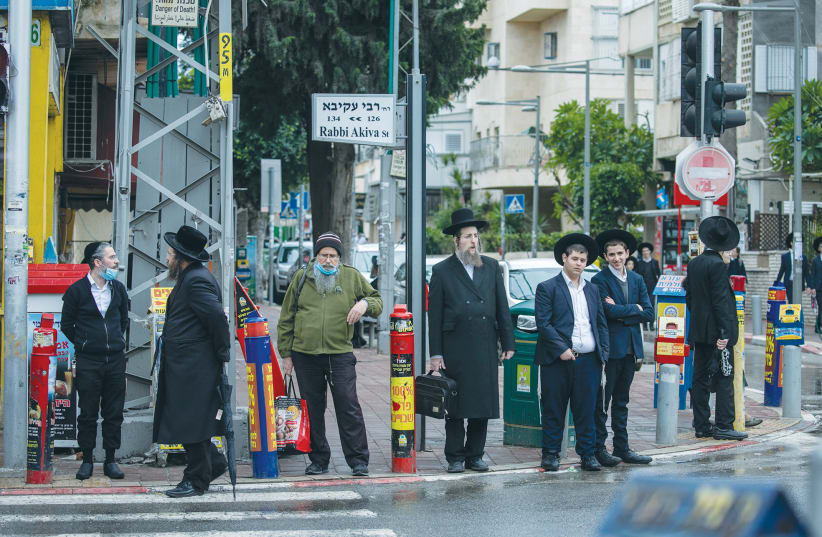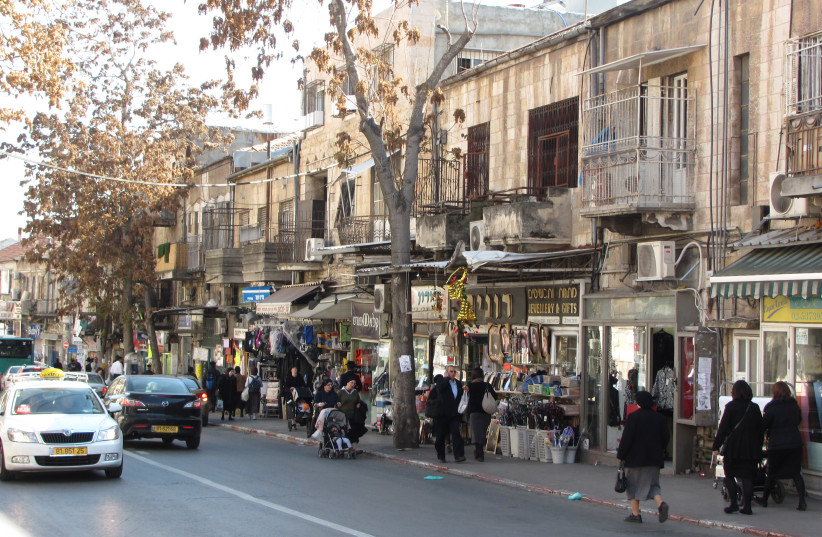The debate over Israel’s national and religious character began many years prior to its establishment, and has continued, and even radicalized, since then. All the great minds behind Zionism and the establishment of the Jewish nation state, including Herzl, Jabotinsky, Wolffsohn, and Kalischer, wrote about its religious character.
Since all Zionist philosophers and their implementers were secular Jews, it was only natural for them all to envision the Jewish nation state as secular, where freedom of religion and freedom from religion would be available to every citizen according to their faith.
It is noteworthy that religious Jewish philosophers, such as Maimonides, also allowed every individual to make their own choices, claiming that “each person should live according to their own belief.” Christianity followed this principle, and even the Prophet Muhammad in the original Islam – before it was distorted by a group of murderous extremists – stated that “each person shall live in their religion and God be with them.”
However, throughout history, a dramatic change occurred in the relations between democracy and free rein versus religious principles and those who viewed themselves as its representatives on earth. The demands made in the name of religion increased, the views held by religious leaders became more extreme. The governing perception of many radical parties became one that imposed religion on all walks of life, determined ruling principles as well as the source of its authority, and forced these life rules on all citizens.
It happened in radical Islamic countries, it was the way of Christianity in Europe throughout the Middle Ages, and it is how the Israeli rabbinate – particularly its extreme leaders – are conducting themselves.
Importantly, before the State of Israel was established, all Jewish religious denominations in Europe had altogether refused to cooperate with the Zionist initiative, viewing the establishment of the Jewish state as heretic and totally illegitimate. Once Israel was incepted, and the leaders of the various hassidic streams realized that this development was irreversible, while the scope of antisemitism in Europe was ever increasing, they decided to relocate their bases of power to it.
They integrated into the ruling establishment to ensure that the state would develop in the directions they deemed appropriate and have the religious character that matched their own vision. Founding father and first prime minister David Ben-Gurion, who, back then, refused to collaborate with the Arabs, was forced to agree to every demand made by the ultra-Orthodox parties so that they would allow him to form a coalition that would enable the management of state affairs.
SO WHERE does one draw the line between religion and nationality? How far does and should religion go in the management of state affairs? To answer these questions, one should examine the data and facts on the ground in 2023 Israel.
Despite the understandings Ben-Gurion had reached, the final version of the Declaration of Independence clearly stated that Israel would be the Jewish nation-state, and “uphold the full social and political equality of all its citizens, without distinction of race, creed or sex; will guarantee full freedom of conscience, worship, education and culture.” The understandings, at the time, pertained to a limited number of yeshiva students who would be recognized as Torah learners by profession, and would therefore be exempt from military service.
But reality often does not align with theory. Throughout Israel’s existence, the ultra-Orthodox sectors of its population had developed completely separate education systems. While partly budgeted by the state, these did not contain all civil core subjects, and were not overseen by the Education Ministry.
The number and scope of exemptions from military service soared, and this population’s level of involvement in the labor market was negligible. The combination of large families who are unemployed, lack regular income and the basic education required for knowledge and occupation, has led to extensive circles of poverty among this sector of Israeli society. Nevertheless, the state of affairs toward the end of 2022 is somewhat different, and should be duly noted.
According to the projections published by the Israeli Central Bureau of Statistics (CBS), the ultra-Orthodox sector will comprise 16% of the Israeli population by 2030. According to data provided by the Interior Ministry, the ultra-Orthodox cities have the highest poverty rates in Israel. The scope of poverty and its impact on the standard of living in ultra-Orthodox society is far greater than its scope and impact in other sectors of the Israeli population.
In 2019, it was 44%, compared to 22% in the general Israeli population. In 2019, the monthly gross income of an ultra-orthodox household was NIS 14,121 on average, compared to NIS 21,843 outside the ultra-Orthodox population.
The Israel Democracy Institute’s annual report on ultra-Orthodox society has for the past seven years, been reviewing the changes that have taken place in this society in recent decades. The findings pertaining to the education system are no less alarming.
In 2021-2022, ultra-Orthodox education comprised 25.5% of the Hebrew-speaking education system, and 19.5% of the entire Israeli education system. Nevertheless, in 2019-2020, 59% of ultra-Orthodox female students took at least one matriculation exam, compared to just 31% in 2008-2009.
During the same time period, the rate of students taking matriculation exams among ultra-Orthodox males fell slightly from 16% to 15%. The rate of students who passed all matriculation exams in the ultra-Orthodox sector in 2018-2019 was a mere 14%, compared to 83% in the state and state religious education streams.
FINDINGS ON employment are slightly more encouraging. According to data collected in 2022, the rate of employment is 53.5% among ultra-Orthodox men, the highest in 25 years. Among women too, 2022 indicate the highest ever rate of employment – 80%. A summary of the trends reviewed in this paper indicates a considerable improvement in levels of employment and income in Israeli ultra-Orthodox society, compared to a much slower and slighter improvement in the level of broader education.
Another issue that must be discussed, particularly against the backdrop of the newly-formed Israeli government and its underlying principles, is the level of Israel’s religiosity; namely, where, if anywhere, are the lines drawn between defining the State of Israel as Jewish and democratic, and defining it as religious.
So, are we more religious or more secular? According to data published by the CBS in its “Social Survey,” which also includes the section entitled “religion and religiousness,” out of 4.5 million Jews over the age of 20 in the State of Israel, 45.3% responded that they were “not religious” or “secular,” while 33.1% said they were traditional (“religious traditional” and “not so religious traditional”), 10.7% were religious, and 10.5% were ultra-Orthodox – (an additional 0.4% did not account for their level of religiousness).
However, when one adds the secular population to the non-religious traditional population, two thirds of traditional Jews in Israel define themselves as non-religious traditional according to CBS data. Moreover, 19.2% of the Jewish population defines itself as “not so religious traditional,” and so, together with the secular population, a total of 64.5% is reached.
In any event, the secular Jewish sector is larger than that of traditional Jews alone (33.1%). Simply put, traditional Jews are indeed the majority in Israel; however, most Israeli Jews are not religious, do not observe Shabbat or other mitzvot, and, therefore, would have their freedom of action limited by the enforcement of religious laws, thus contributing to increased polarization and radicalization in Israeli society.
THIS ANALYSIS does not only have implications for the new government’s level of legitimacy among Israeli citizens, but for the future of the state and its chances of survival as a democracy.
New demands to stop Israel Railways electrification work on weekends, stop all forms of public transportation on Shabbat, prevent core studies in entire sectors while forcing all Israeli students to learn Torah, and other such bills; a law prohibiting leavened food from being brought into hospitals on Passover; and rabbis’ announcements that Israel should be governed by Jewish law (Halacha) are all expected to contribute significantly to increased polarization and the deepening of rifts that already exist in Israeli society.
And in the absence of proper checks and balances, it is hard to tell what the future holds. Israel’s character as a modern democratic state conflicts with the intentions of some coalition members to turn it into a halachic state governed by the rules of religion. This is not a battle against religion, on the contrary. Being a believer is fine, and every person is entitled to believe and lead their lives accordingly; however, in order to maintain Israel’s social and national resilience, social and civil stability must be ensured.
The Israeli government should strike a balance between the demands made by the ultra-Orthodox sectors and the needs of Israeli citizens in general, so as to allow all sectors to enjoy freedom of action in line with their needs, and avoid imposing religious law on the entire country. It is the government’s responsibility to ensure that the State of Israel remain the Jewish nation state without becoming a religious state. This need, once again, illustrates the critical importance of a constitution for Israel.
The writer is chairman of the New People’s Council and head of national resilience research at the Institute for Policy and Strategy of Reichman University.

